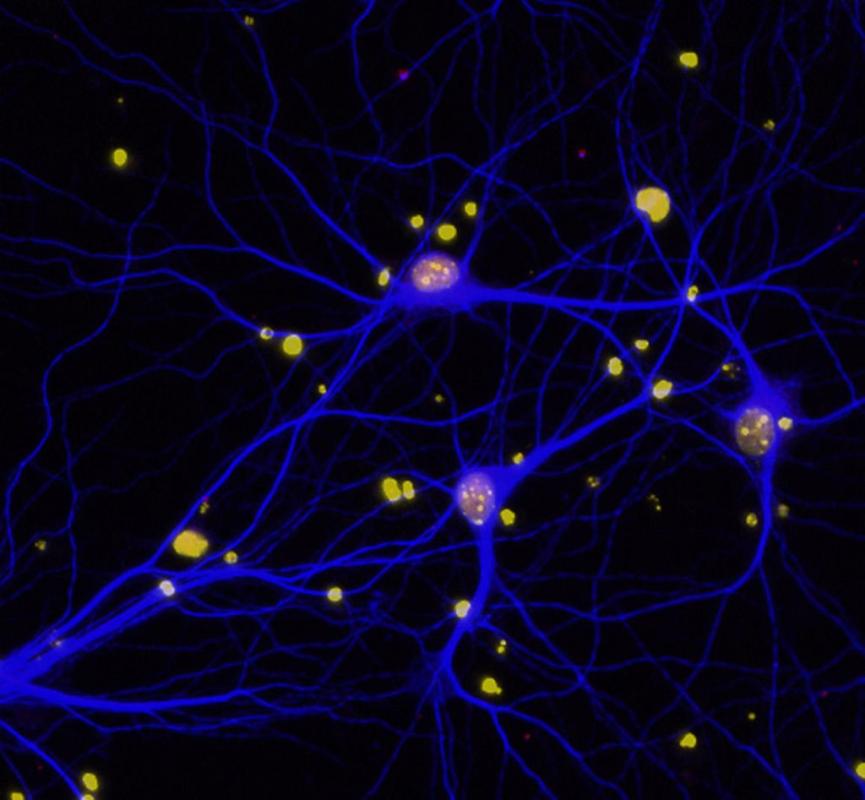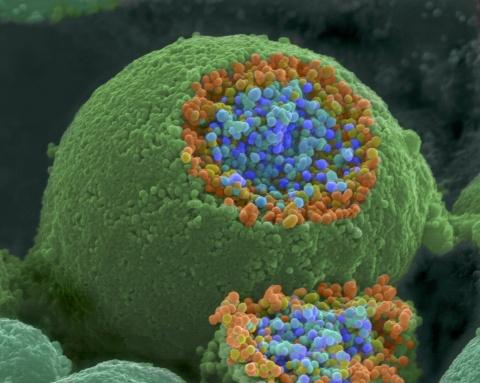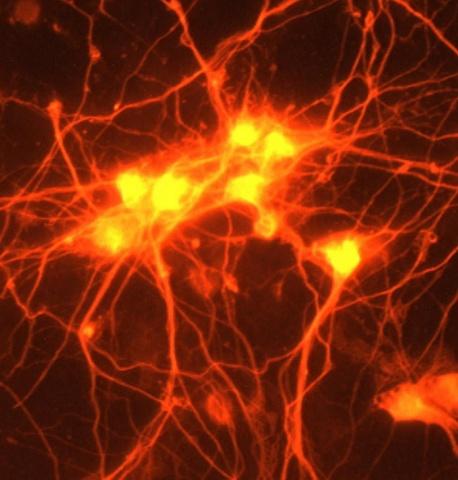Eye strokes: Earlier ED referral can reduce impact of sudden vision loss
A recent study led by Duke vascular neurologist Brian Mac Grory, MB, BCh, BAO, examined treatment for central retinal artery occlusion (CRAO or “eye stroke”)—a rare type of stroke characterized by the sudden onset of painless, usually permanent vision loss in one eye.
Mac Grory notes that while most strokes present with weakness, facial droop or difficulty speaking, eye strokes are hard to recognize and treat in a timely manner because the only symptom may be sudden blindness in one eye.
Duke Neurology at AAN 2021: Highlights from a virtual year
The American Academy of Neurology (AAN) has moved its annual meeting to a virtual setting this year, but its offerings of the latest education and scientific programming continue. This year, members of the Duke Neurology Department collaborated with their colleagues at Duke and with other academic institutions to advance our understanding of neuro-oncology, myasthenia gravis, ALS, and other fields and disciplines.
Duke Neurology Research Round Up, April 2021
Members of the Duke Neurology Department contributed to 21 new studies in peer-reviewed journals this March, advancing our ability to understand, treat, and prevent diseases and conditions from across the field of neurology. Brian Mac Grory, MB BCh, MRCP, and other members of our stroke and vascular neurology helped answer questions about the best way to treat patients who have a stroke in their sleep.
Neurology and Women's Health 2021: Stroke
Stroke, a leading killer of men and women, kills twice as many women as does breast cancer. It also brings its own unique set of health concerns for women. At the most basic level, the symptoms of stroke differ between men and women, with women more likely to experience symptoms still known as "non-traditional" because they are less studied than the most common symptoms in men. In addition, women are both more likely than men to face complications of stroke and to bear the burden of caregiving for a partner or relative who has had a stroke.
AHA offers guidance on management of eye stroke
While most people think of strokes affecting the brain, they can also affect the eye. Central retinal artery occlusion (CRAO) is a rare form of acute ischemic stroke that occurs when blood flow is blocked to the main artery of the eye. It typically causes painless, immediate vision loss in the impacted eye, with fewer than 20% of people regaining functional vision in that eye.
Duke Neurology Research Round Up, March 2021
Research from members of the Duke Neurology Department advanced the fields of clinical, translational, and basic neurology in February. Over the past 28 days, our faculty, staff, and trainees contributed to journal articles answering questions about the use of mobile phones for stroke care, modifiable risk factors associated with cognitive decline in Parkinson’s, the genetics of Alzheimer’s disease, and more.
Duke Neurology Research Round Up, February 2021
Members of the Duke Neurology Department contributed to 13 new peer-reviewed journal articles in January 2021. Daniel Laskowitz, MD, MHS, co-authored two studies examining the complications of traumatic brain injury. A team including Andrew Spector, MD, wrote a “road map” for how neurology departments can create effective diversity officers. Our faculty, trainees, and research staff also examined possible treatment candidates for ALS, identified new risk factors for stroke, and genetically engineered cartilage to produce its own anti-inflammatory drug.
Duke Neurology Research Round Up, January 2021
The final month of 2020 saw fifteen new publications written or co-written by members of the Duke Department of Neurology. Sneha Mantri, MD, MS, was a lead author of a new study examining factors contributing to burnout and moral injury among health-care workers at Duke. Our Neuromuscular Disease faculty wrote multiple studies advancing our understanding of myasthenia gravis, including how the COVID-19 pandemic is affecting people with this condition. Other articles answered questions about stroke, Parkinson’s, and other diseases.
Staff Spotlight: Melissa Freeman, RN, MSN
A Comprehensive Stroke facility needs to meet more than 400 complex requirements from the Joint Commission. As our Stroke Program Manager, Melissa Freeman, RN, MPH, works to make sure Duke University Hospital meets those requirements on a daily basis. In this week’s “Spotlight” interview, Freeman talks to us about the interdepartmental coordination, patient care, protocols, and education involved in her day-to-day work.
Duke Neurology Research Round Up, December 2020
This November, research from members of the Duke Department of Neurology examined how different types of seizures feel to the person experiencing them, discovered genes associated with longevity and health cognition, analyzed how the COVID-19 outbreak impacted stroke care, and more. Our faculty, trainees, and staff contributed to 15 studies published in the past 30 days. Read about each of them, and find links to the original articles below.
Multiple Sclerosis and Neuroimmunology







